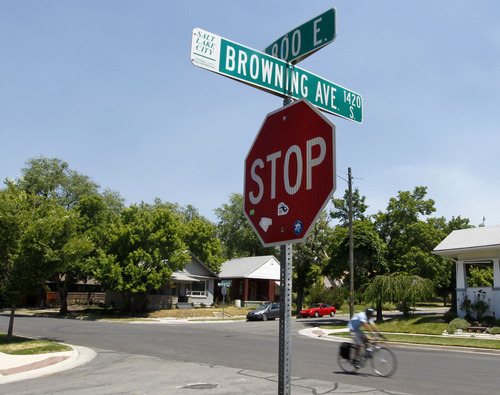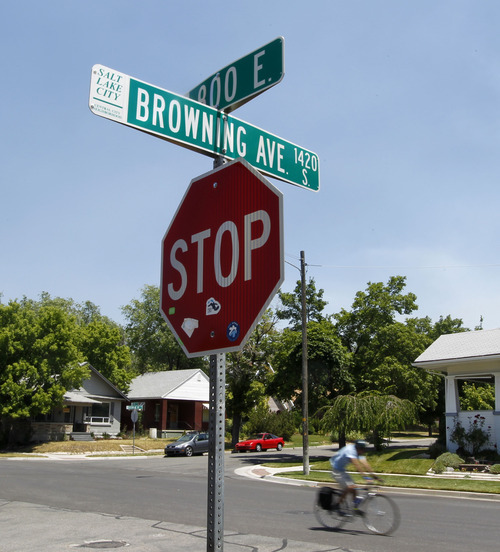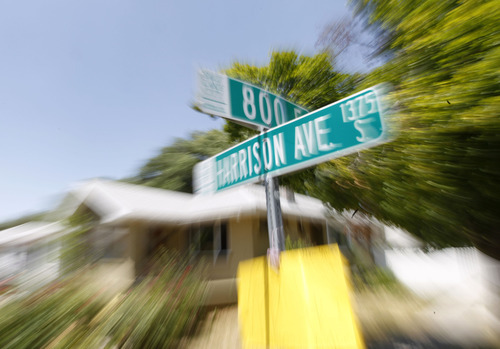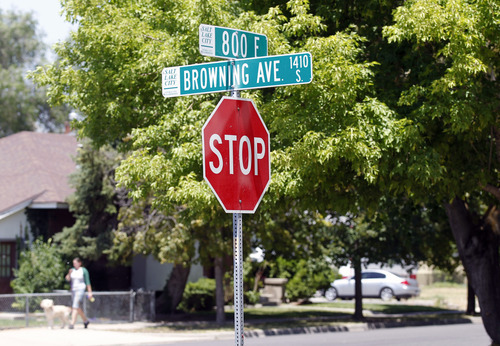This is an archived article that was published on sltrib.com in 2012, and information in the article may be outdated. It is provided only for personal research purposes and may not be reprinted.
Matthew Batt lived in a lot of cities during his days as "a perpetual student."
He studied English and philosophy in Milwaukee, then earned a master's degree in Boston. "Such an intellectually intimidating city," he said.
Batt earned another master's degree in fiction and nonfiction writing at Ohio State University, where he commuted more than an hour each way to teach business writing to prison inmates. "[Columbus] had a brilliant community of writers, but it was a depressing city."
When Batt moved to Salt Lake City to attend the University of Utah's doctoral program in English literature and creative writing, he collided with subject matter worth his first book.
Batt and his wife, Jenae, bought a run-down house in a Sugar House neighborhood that would test his patience and do-it-yourself mettle, expose family fault lines and later result in a laugh-out-loud memoir.
Sugarhouse, subtitled Turning the Neighborhood Crack House Into Our Home Sweet Home, charts Batt's journey through the emotional maze and physical challenges of American homeownership with all the adventure and poignancy of Odysseus' return home to Ithaca, but with the comic eye of David Sedaris.
It's an unusual memoir due to its humor, subject matter and setting. "Matt writes bravely about the domestic life of men — something that really doesn't get written about much anymore, especially by contemporary male writers," says Paisley Rekdal, one of Batt's writing instructors at the U.
While Utah has inspired plenty of writing in homage to its natural beauty and pioneer history, Salt Lake City itself has never generated much in the way of books, let alone memoirs, says Betsy Burton, owner of The King's English Bookshop. "This is a riven city," Burton says. "People are afraid of hurting other people's feelings. There are a lot of different elements that make it hard to write about."
Mona Awad, a bookseller at Burton's store, said the fact that Batt didn't grow up in Salt Lake City lends it more nerve and persuasion. "That's probably why his book's so fearless."
Purchasing and owning a home is as complicated as the humans at the center of every decision, Batt says from his current home in St. Paul, Minn., where he teaches English and writing at the University of St. Thomas. "Ultimately it's about a relationship — with your neighbors, your contractors, your banker, but most especially your family and the people you're related to," he says. "Homes are emblematic of who you are and what you're capable of."
Published last week by Mariner, a division of the New York publishing house Houghton Mifflin Harcourt, Sugarhouse earned hearty jacket endorsements from Andre Dubus III and U.S. Poet Laureate Billy Collins, who called Batt the "oddball cousin to Thoreau and Tracy Kidder."
Batt's memoir opens with sticky narrative salvos about what it means to still rent after you've reached adulthood and marriage. "All we knew was that everyone but us was dying, getting divorced, or having a kid, and we were stuck with our hands in our pockets waiting for the band to start," he writes. "Renting, like long-term dating or being a grad student or a waiter, is at once pathetic and comforting."
Drawn to 800 East between 1300 and 1700 South in Sugar House —which Batt labels as "one of two viable neighborhoods for liberal types who want to live in Utah but pretend they're still in America"— the writer spies a house that "seethes" with needed upgrades but somehow charms him with possibilities. The owner concedes to having heard neighborhood rumors that the previous renter sold crack and that her son buried dolls in the backyard. But even with a kitchen "staged to induce Martha Stewart's [hara-kiri]," Batt takes the bait. For legal reasons, the writer says, in the book he never reveals the house address.
The story gains gravitas when Batt recruits his grandfather to help the couple secure a loan. Shocked by revelations of his grandfather's philandering, and struggling to keep pace with remodeling projects while maintaining his marriage and graduate studies, Batt draws rich parallels between familial and domicile challenges.
"[Houses] don't say much," Batt writes. "Not about who they really are. There's hardly getting to know a house until you're fully committed, blindfolded and swan-diving into what might be a very dry pool."
Twitter: @Artsalt
Facebook.com/nowsaltlake —
Sugarhouse: Turning the Neighborhood Crack House Into Our Home Sweet Home'
By • Matthew Batt
Publisher • Mariner Books
Pages • 272
Price • $14.95
Matthew Batt reading
Batt will read from his first book, the memoir Sugarhouse: Turning the Neighborhood Crack House Into Our Home Sweet Home, which was published last week by a Houghton Mifflin Harcourt imprint.
When • Tuesday, June 26, 7 p.m.
Where • The King's English Bookshop, 1511 S. 1500 East, Salt Lake City
Info • Free. Call 801-484-9100 or visit http://www.kingsenglish.com for more information.









